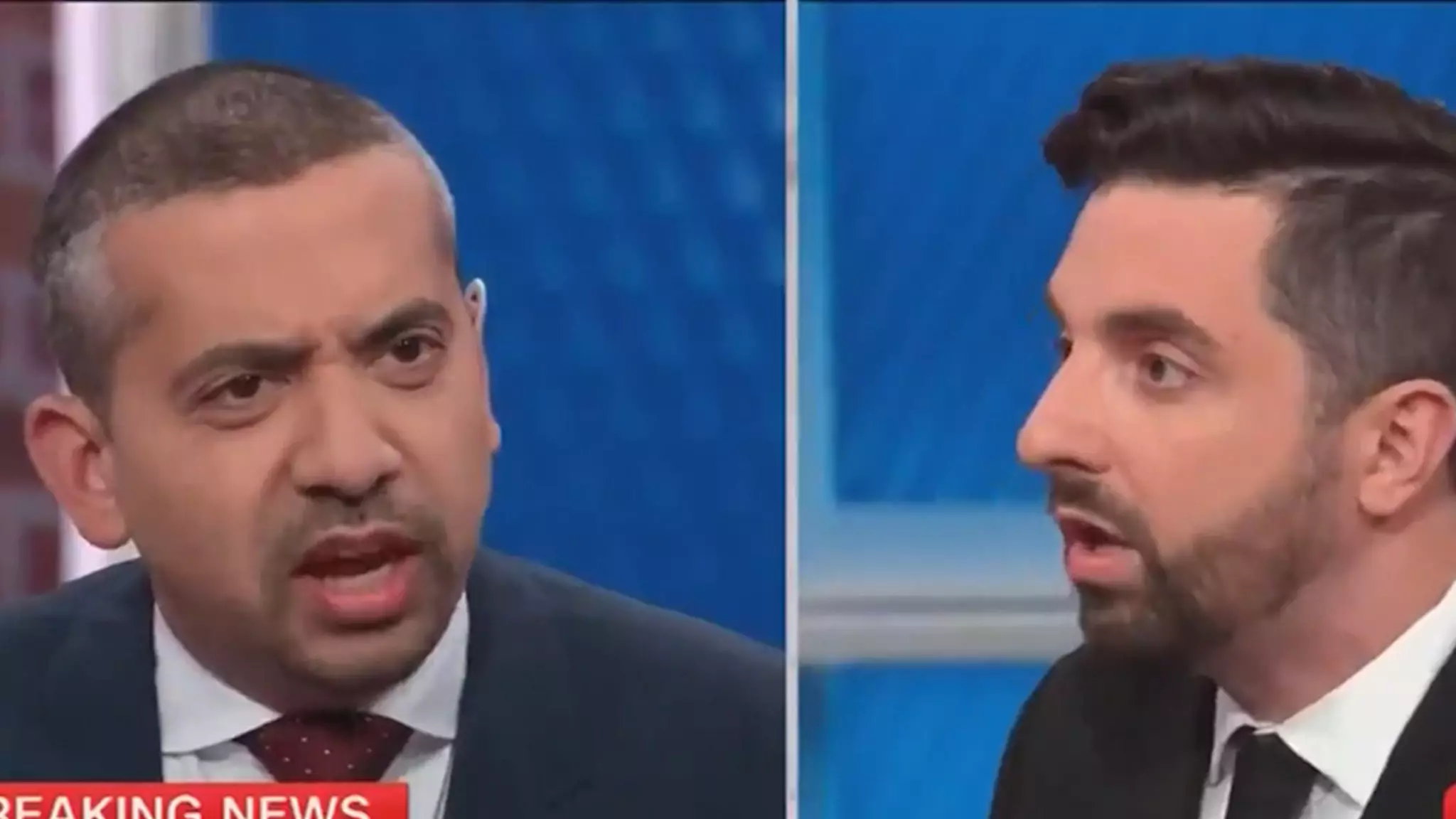In a world where political correctness and accountability often collide, the reactions to Ryan Girdusky’s controversial remark during a live airing of CNN’s “NewsNight with Abby Phillip” underscore the fine line between humor and insensitivity. The political commentator’s comment—”I hope your beeper doesn’t go off”—directed towards fellow panelist Mehdi Hasan, illuminated several societal issues surrounding race, media responsibility, and political discourse.
During a heated debate about antisemitism and the complexities surrounding support for Palestine, Girdusky’s comment came as a shocking interruption. Historically, the term “beeper” evokes memories of the past when communication devices were used to alert individuals, often in dubious contexts. In this instance, Girdusky ostensibly drew a grim parallel to targeted attacks on Hezbollah militants, implying a form of violence against Hasan without explicitly stating so. When Hasan expressed his perspective on Palestinian support, Girdusky’s comment pivoted the conversation to a more ominous tone.
The backlash was instantaneous. CNN quickly moved to distance itself from Girdusky, proclaiming that there is “zero room for racism or bigotry” within their programming. This reaction not only reflects the network’s editorial stance but also highlights the growing scrutiny political commentary is under in contemporary media.
Following the uproar, Girdusky defended himself by suggesting his comment was intended as a joke gone wrong. During an interview with TMZ, he stated, “I’m not a victim; I said what I said. I own it.” His description of the situation indicates a lack of awareness that humor can often be misconstrued, particularly in political discussions rife with contention.
Moreover, Girdusky’s assertion that Hasan supports Hamas—a point he doubled down on after the fact—reveals a broader issue in political discourse: the oversimplification of complex geopolitical stances. By failing to accurately respect Hasan’s position, Girdusky not only mischaracterized his opponent but also sidestepped accountability for the gravity of his words.
Media outlets are platforms where voices that range from entertaining to critical have significant influence on public perception. The incident at CNN serves as a reminder of the degree to which political discourse can degrade into sensationalism. Girdusky himself acknowledged the media’s proclivity for outrage-driven coverage, stating: “That’s the way the news media works; it tries to feed outrage, fear, and anxiety.”
This statement points to an ongoing struggle within journalism: the balancing act of maintaining viewer engagement while fostering responsible discourse. In an era increasingly devoted to clickbait headlines and provocative commentary, Girdusky’s incident amplifies questions regarding the ethical obligations of media professionals—especially those who participate in live broadcasts where spontaneity reigns supreme.
Girdusky’s termination from CNN highlights the significant repercussions of inflammatory rhetoric. The network’s response not only serves as a warning to other commentators but also reflects a shift toward greater accountability in media practices. Public reactions, including Hasan’s legitimate outrage, reveal the potential fallout for guests and hosts alike from comments that straddle the fine line between humor and hate speech.
While some might argue that such incidents stimulate free speech, enabling individuals to express contentious thoughts, this case illustrates how words can perpetuate divisiveness rather than constructive dialogue. The public expects more than flippant humor from political pundits, especially when discussing issues that profoundly affect lives and communities.
As society continues to grapple with the intersections of race, politics, and media, individuals such as Ryan Girdusky must recognize the weight their words carry. His remark not only alienated him from a platform willing to engage in critical discussions but also highlighted a growing demand for sensitivity in political commentary.
In a landscape marked by polarization, the challenge will be to cultivate a discourse that values nuance over bravado. It is essential for media participants to approach contentious topics with the gravity they deserve, as reactions to Girdusky’s remarks serve as an important lesson in the impact of political humor and its reception. The fallout from this incident may well be a needed catalyst for change in how we engage with the diverse tapestry of modern political dialogue.


Leave a Reply